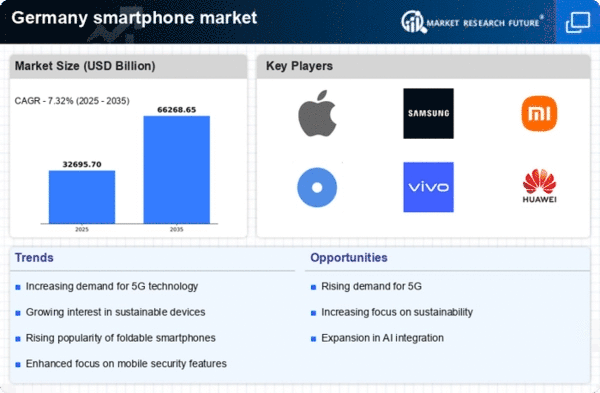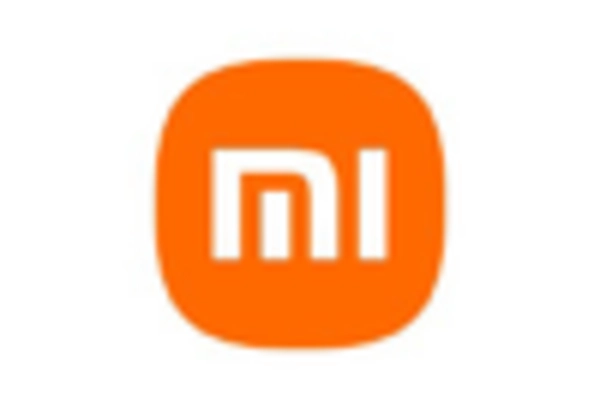Expansion of Mobile Payment Solutions
The smartphone market in Germany is witnessing a notable expansion in mobile payment solutions. With the rise of contactless transactions, consumers are increasingly utilizing their smartphones for payments, leading to a significant transformation in purchasing behavior. Recent statistics indicate that around 40% of smartphone users in Germany have adopted mobile payment methods, reflecting a growing trust in digital financial solutions. This trend is likely to encourage smartphone manufacturers to integrate advanced security features and payment technologies, thereby enhancing the appeal of their devices in the smartphone market.
Shift Towards Subscription-Based Models
The smartphone market in Germany is witnessing a shift towards subscription-based models, which is altering traditional purchasing behaviors. Consumers are increasingly opting for subscription services that offer access to the latest devices and software updates without the burden of upfront costs. Recent reports indicate that approximately 25% of German consumers are considering subscription plans for their next smartphone purchase. This trend may lead manufacturers to explore innovative pricing strategies and service offerings, potentially reshaping the competitive dynamics within the smartphone market.
Rising Popularity of Wearable Technology
The smartphone market in Germany is experiencing a rising popularity of wearable technology, which is closely linked to smartphone usage. As consumers increasingly adopt smartwatches and fitness trackers, the demand for smartphones that seamlessly integrate with these devices is growing. Recent data indicates that around 30% of smartphone users in Germany own a wearable device, highlighting the interconnectedness of these markets. This trend may encourage smartphone manufacturers to enhance compatibility and features that cater to the needs of wearable technology users, thereby shaping the future landscape of the smartphone market.
Increasing Demand for High-Performance Devices
The smartphone market in Germany is currently experiencing a surge in demand for high-performance devices. Consumers are increasingly seeking smartphones equipped with advanced processors, enhanced graphics capabilities, and superior battery life. This trend is driven by the growing reliance on smartphones for gaming, streaming, and multitasking. According to recent data, approximately 65% of German consumers prioritize performance specifications when purchasing a smartphone. This shift in consumer preference is likely to influence manufacturers to invest in research and development, thereby enhancing the overall competitiveness of the smartphone market in Germany.
Integration of Artificial Intelligence Features
The integration of artificial intelligence (AI) features into smartphones is becoming a prominent driver in the smartphone market in Germany. AI capabilities, such as voice recognition, personalized recommendations, and enhanced photography, are increasingly influencing consumer choices. Recent surveys suggest that approximately 55% of German consumers consider AI features as a crucial factor when selecting a smartphone. This growing interest in AI technology is likely to prompt manufacturers to innovate and differentiate their products, thereby intensifying competition within the smartphone market.















